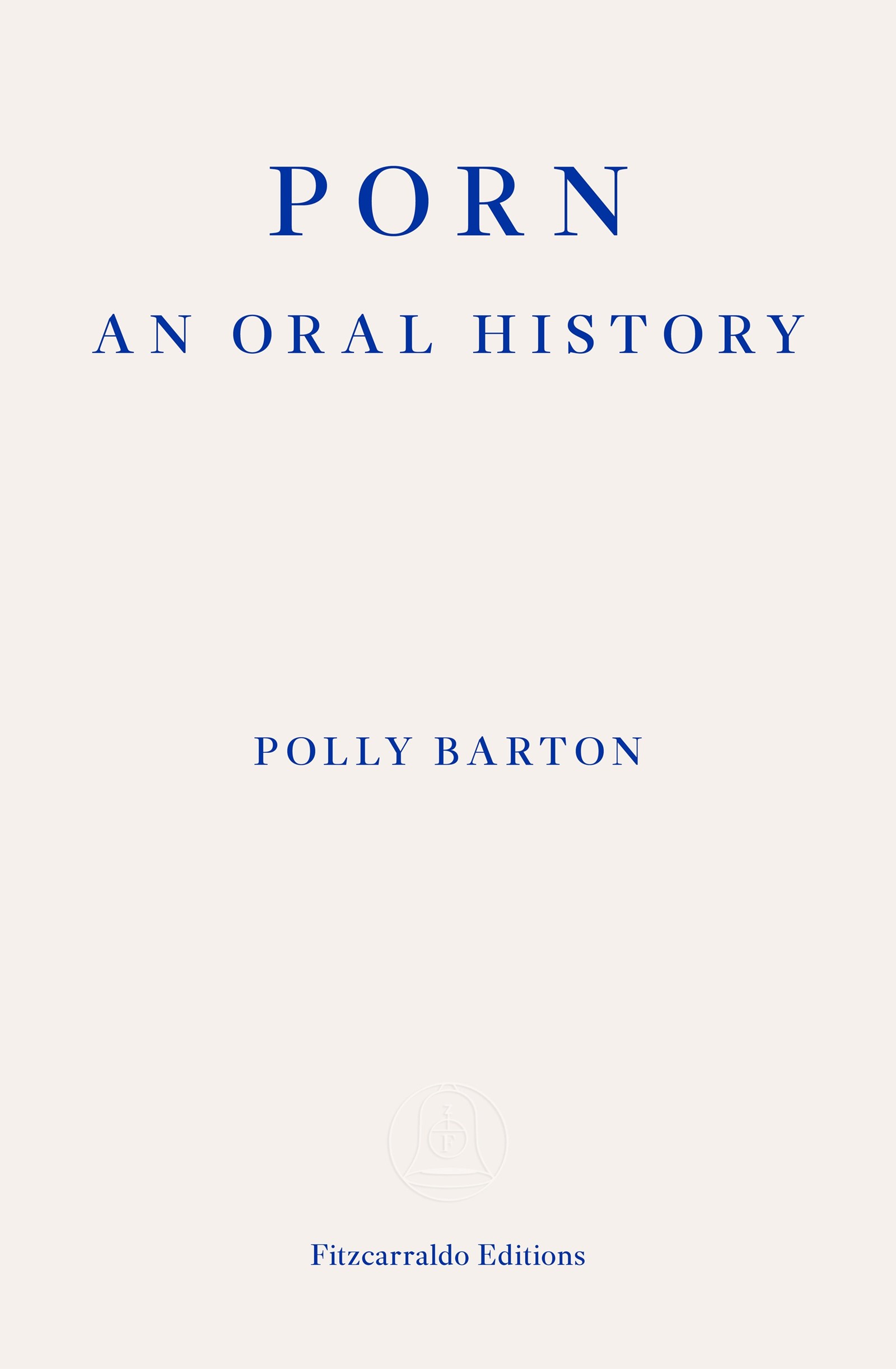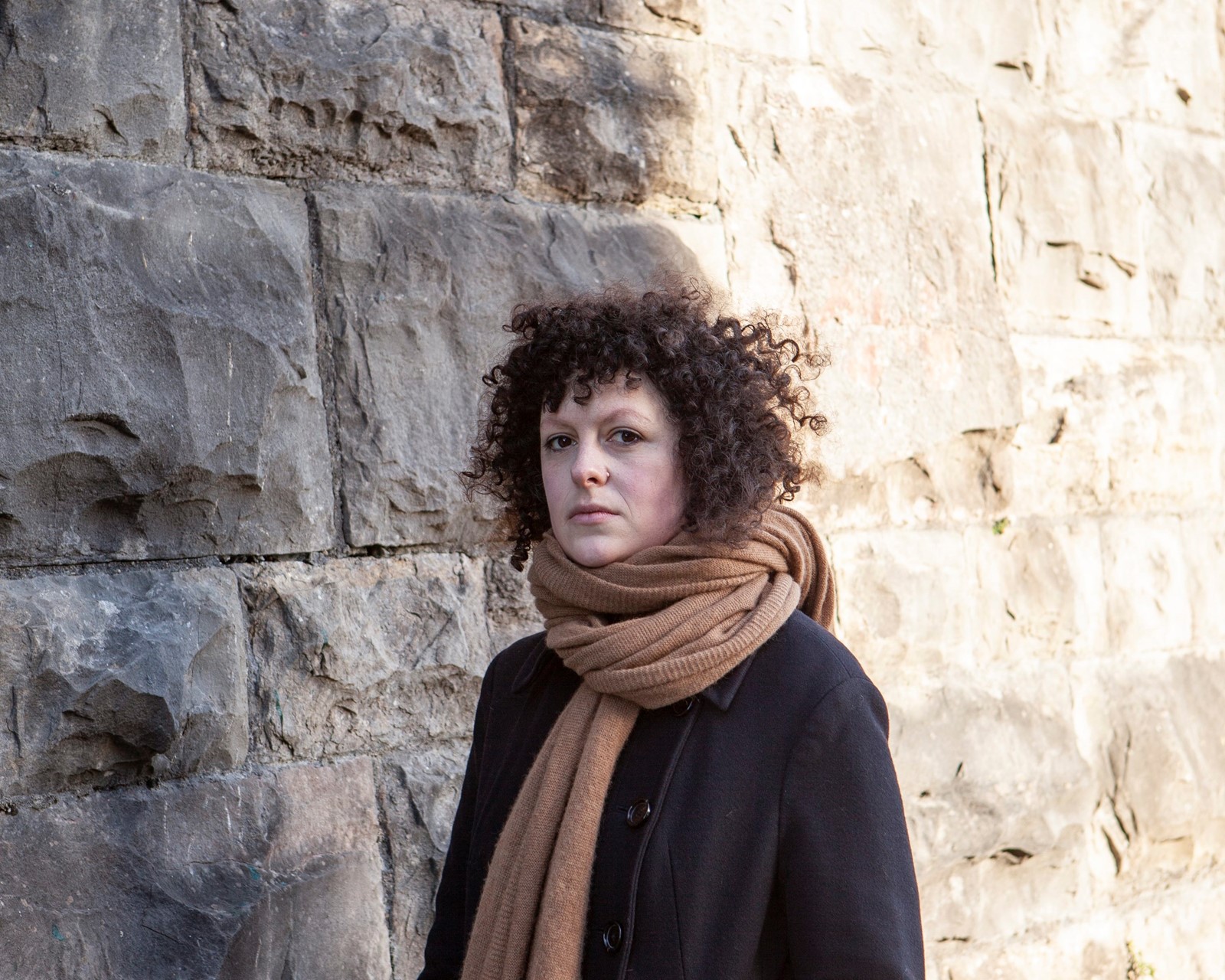“It’s kind of amazing,” says Polly Barton. “All you really have to do is give people the impression that you’re open to hearing this stuff and you’re not going to judge them, and the floodgates just open.” Barton, for probably not the first or last time this week, is talking about porn. Since writing her second book, Porn: An Oral History, the curious silence she identifies around porn seems, for her, to have been definitively broken. Her goal? To break it for others as well.
Curious about her own ungraspable, swirling thoughts about porn, and the embarrassment that seemed to block most public talk about it, Barton decided to ‘harness her ignorance’ and embark on a project: interviewing 19 friends and acquaintances about porn, without knowing what they were going to talk about beforehand. The resulting conversations recognisably represent a limited milieu – most interviewees are in their twenties and thirties, most share generalised progressive anxieties about both porn and anti-porn activism, and none say they have done sex work – but include a fascinatingly wide array of perspectives and experiences.

Flicking through the book, a gay trans man talks about the world of niche fetish porn, a Japanese woman discusses the effects of everyday fetishisation, and an older man relays his first experience of watching hardcore porn in his forties. People talk about what they watch and why, along with their discomforts and hangups around porn. There’s a rare openness and guilelessness to the book that feels infectious; even when something in the book feels wrong, you want to go out and talk about why. So, Barton’s specific objective for the book seems to have already succeeded.
Over Zoom, AnOther spoke with Barton about porn addiction, monogamy, sex education, and being sexualised in public.
Elia Cugini: I’m wondering how it felt to write a book this exploratory, in a profession that sometimes seems to mandate expertise? Especially writing it for Fitzcarraldo, whose whole aesthetic is so intimidatingly refined!
Polly Barton: It was extremely nerve-wracking, but I also feel really quite strongly that there was a need for this. The reason I started this project on porn was an awareness of the lack of conversations around it, and one of the things that prevents people from having casual conversations about porn is a sense of pressure; this vicious cycle of never having spoken about it, not being used to talking about it, feeling like you can’t express yourself. And I think within that context, providing another impenetrable wall of expertise is not particularly useful to people. It might be enlightening while they’re reading it, but then it just consolidates the sense of a gap between them and the ‘experts’.
EC: Your background is in translation – how have you found the experience of moving to writing your own nonfiction, and to writing a book about porn?
PB: With my previous book, Fifty Sounds, it’s about language learning and it’s a memoir. It’s not just about translation, but it felt like quite an organic addition to my translation practice. This one feels like more of a departure, in terms of brand image. I’ve had a few comments like ‘wow, porn! That’s … ’, and I totally get that, but the more that time goes on, the more I can see the connections that run through everything that I do. Like in my translation work, I’m facilitating people conveying their positions, but they’re not exactly my positions. I’m standing in this ambiguous place.
“One of the things that prevents people from having casual conversations about porn is a sense of pressure; this vicious cycle of never having spoken about it, not being used to talking about it” – Polly Barton
EC: You talk in the epilogue about a culture of passivity around pornography. I wonder if, when it comes to women in particular, being passive and not engaging with porn is seen as a more virtuous position?
PB: Something that I really appreciated that came out in various conversations within this book is the disingenuousness, not necessarily deliberate, but the disingenuousness of seeing porn as something that’s just ‘over there’, that you’re not touching it or you’re above it. Even if you don’t consume porn in any capacity, porn impacts so much of our lives and how we see ourselves. I can understand the impulse to separate yourself from porn when it can seem so threatening, but I also feel like we’re past the point where that’s possible, and by doing so we’re playing into this idea where any woman who watches porn and does identify that these are their desires must be dirtied in some way. I personally feel like the way towards all of us enjoying a more open attitude to sex and relating to one another is to move towards a space where everyone feels safe to own their desires.
EC: I think a lot about the anxiety of being seen, in some sense, as a porn category; the people of colour you speak to in the book are particularly astute about that, on fetishisation and being evacuated of their personhood. I’m trans, so I’m used to being struck with demeaning sexual archetypes out of nowhere. But I also don’t know if I’d have as strong a sense of myself if it wasn’t for the pornography that told me “here is something you can be”.
PB: The initial impulse to write this book was a relatively emotional one, bringing together several strands of feelings I had about porn. One of the oldest ones was being 13 or 14 and coming to understand that, ‘oh, you’re going to become a woman, you’re going to be seen as a woman by society,’ and gradually piecing together that what being a woman in society meant had a strong relationship with the way that women were portrayed in porn, and this real, visceral discomfort with that, and this kind of double-edged, inescapable shame. There was the shame that came from being associated with that, and treated like that against my will, and then the shame of not being sexualised, of not being ‘worthy’ of it.
Within certain parameters porn can be a way of expanding your sexual horizons and your ‘look book’ if you will – trying on stuff, seeing representations of things that then help you understand who you are sexually, and that shape your sense of self. It’s so complex trying to fit together the negative and positive aspects of that.
“Even if you don’t consume porn in any capacity, porn impacts so much of our lives and how we see ourselves” – Polly Barton
EC: As someone who doesn’t usually see much mass-market, straight pornography, it felt like the book was reacquainting me with how bad the regular stuff is! I’m not sure consuming more niche, ‘ethical’ stuff is a simple answer, because the bulk of pornography is still there and it’s still awful.
PB: ‘Porn’ is so broad, and our individual senses of it can be so narrow. If you take porn to be something that people consume deliberately to be sexually aroused, then it’s almost limitless. And yet we speak of it as though we are speaking about the same thing, as though we can have a conversation about what porn is. In each interview, I would go in trying to have no preconceptions about the porn people were watching. I didn’t know what they were going to talk about in advance. So, in each conversation, I’d be hitting the ground running, like: oh, this is the kind of porn we’re talking about, and go with that, and adapt my definition, while also keeping an eye on the broader horizon.
EC: The interviewees in the book are very consistent about childhood experiences with porn being very formative, and several express worries about children now, who’ve grown up with the internet, having those experiences younger and younger. Should we try to educate kids before it gets to them?
PB: The average age for a child to see porn now is nine years old. I don’t know if we can reliably get to them before that, but it seems to me that a healthy, generative, supportive educational approach would be: rather than trying to fight that this is going to happen, accepting it and providing support alongside the viewing that will inevitably happen, and treating it in a way that isn’t shocked or sensational or moralistic.
Regardless of what we do, the kids’ experiences probably still will be shocking, even with that support. My early exposure to anything sexual was shocking, and very hard to compartmentalise or work out – and I kind of feel like that’s the nature of making sense of so many things when you’re in childhood, but especially sexuality. You want to give kids boundaries, but you also want to be able to talk without being clammed up by shame.
Porn: An Oral History by Polly Barton is published by Fitzcarraldo Editions and is out now.
